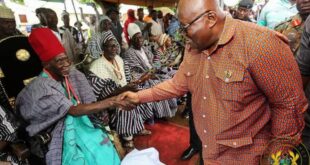Politics: A Game of Perception, Not Just Performance
Politics is such a dark business. You may be talented and gifted and have all that it takes to serve in government or be recognized for your efforts while in opposition, but when optics are not in your favor you end up miserable.
The above observation I believe is common knowledge with many of you reading me. Politics can indeed be a complex and challenging field, where talent, gifts, and dedication are not always enough to guarantee success or recognition. The political landscape is often shaped by a multitude of factors, including power dynamics, party affiliations, and strategic alliances.
It’s unfortunate that many talented and gifted individuals who have the potential to make a positive impact in government or opposition may be overlooked or underappreciated due to various reasons such as:
1. Political machinations and sabotage
2. Party infighting and factionalism
3. Personal attacks and character assassination
4. Unfair biases and prejudices
5. Political maneuvering and backroom deals
6. Personal agendas and biases
7. Lack of resources and support
However, it’s essential to remember that there are still many dedicated and passionate individuals who are driven by a desire to serve the public interest and make a positive difference in the world of politics.
As a result, many end up feeling miserable, disillusioned, and frustrated, despite their best efforts to serve the public interest.
My observation highlights the need for a more inclusive, equitable, and meritocratic political environment, where individuals are judged on their character, skills, and contributions rather than superficial factors. As part of the reconciliation agenda, the National Executive of the party should make it a point to address these challenges and in so doing they will promote a more positive and supportive political culture for the Greater Good.
The issues discussed above can significantly contribute to voter apathy. Thus, when voters see talented and gifted individuals being overlooked or mistreated due to political machinations, they may become disillusioned with the political process and feel that their votes don’t matter. It becomes an avenue for lack of trust. The prevalence of optics over merit and the emphasis on public perception can lead to a lack of trust in political leaders and the system as a whole, causing voters to disengage.
Cynicism will arise based on talent neglect.The negative aspects of political life, such as personal attacks and character assassination, can create a cynical view of politics among voters, leading to apathy and disinterest. Also, it breeds the feeling of powerlessness. That is to say that when voters perceive that political success is more about optics and less about substance, they may feel powerless to effect change, leading to a sense of apathy and disengagement.
More importantly, it creates a situation of disconnection from the political process. The focus on optics and political maneuvering can create a sense of disconnection between voters and the political process, leading to a decrease in voter participation and engagement.
To this extent, NEC is reminded of their task to reconcile the grassroots by addressing these underlying issues and promoting a more inclusive, equitable, and meritocratic political environment. It is only in this manner that we can work to increase voter engagement and reduce apathy.
Thank you
By Wilson Dabuo, History Lecturer, University of Education, Winneba
 Savannah News Online Reporting Only What Matters Most
Savannah News Online Reporting Only What Matters Most



